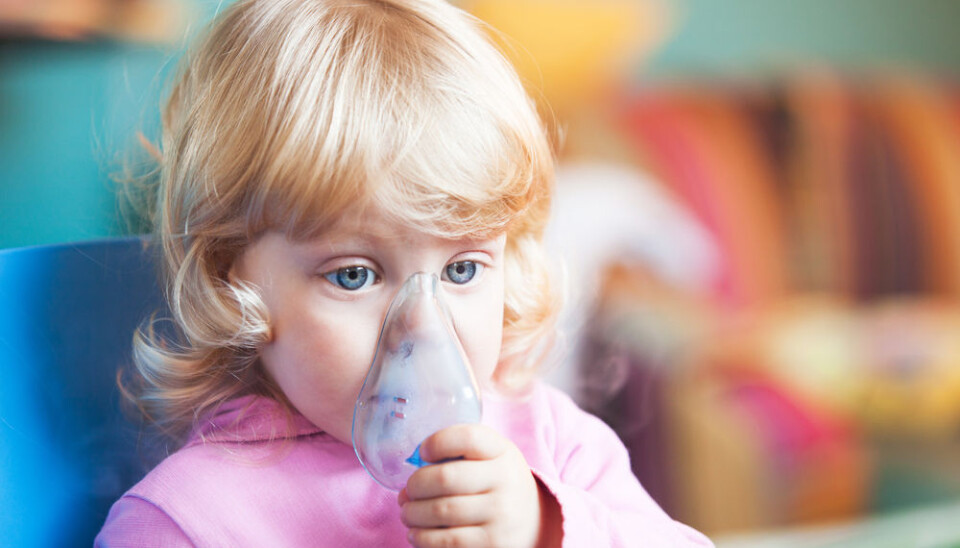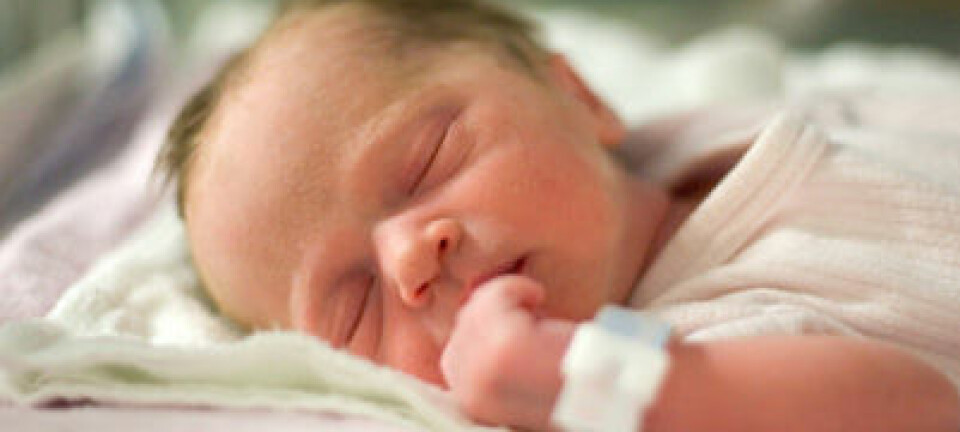
Antibiotic use during pregnancy doesn’t increase asthma risk
Using antibiotics during pregnancy will not increase child's risk of developing asthma, reveals new study. Instead, a weak immune system seems to be the culprit.
Eighteen months ago, a large study from the Danish Pediatric Asthma Center showed that a child was 20 percent more likely to develop asthma if the mother had consumed antibiotics during pregnancy.
Moreover, the study showed that the correlation between the amount of antibiotics consumed and the risk of developing asthma was proportional.
The scientists concluded that antibiotics disturbed the body’s natural bacterial flora, thereby weakening the child’s immune system, ultimately leading to asthma.
The conclusions caused a stir and received international acclaim.
However, a new study from the Danish Pediatric Asthma Center now claims that the interpretation of the data was wrong.
Antibiotics consumption during pregnancy does not entail a higher risk of asthma for the unborn child. The new study reveals that the real culprit is the reason for the antibiotics consumption, i.e. the mother’s poor immune system. Undeniably, this new theory completely destroys our own theory. It’s an example of science doing what it needs to do — i.e. attempt to disprove its own conclusions, which we indeed have done with this new study,” says Denmark’s leading expert in paediatric asthma, Head of the Danish Pediatric Asthma Center Hans Bisgaard, who is also consultant doctor and Clinical Professor of Paediatrics at the University of Copenhagen.
The new study was recently published in the scientific journal The Lancet Respiratory Medicine.
Antibiotic consumption after delivery also increases risk
The purpose of the new study was to check the earlier study for faults by examining whether a child’s risk of developing asthma was only increased if the mother’s antibiotics consumption took place during pregnancy.
The scientists examined the consequences of maternal antibiotic consumption both before, during and after pregnancy.
This revealed that the consumption of antibiotics at all three stages was connected to an increased risk of asthma for the child.
“This means the child has an increased risk of developing asthma if the mother consumes antibiotics at all. So it can’t have anything to do with the influence of antibiotics on the foetus,” says Bisgaard.
The new study also demonstrates a direct correlation between the total amount of antibiotics consumed by the mother and the child’s risk of developing asthma.
“In this way, antibiotics consumption is a marker for the mother’s frequency of infection, but not the underlying reason for the child’s development of asthma,” he says.
However, Bisgaard also stresses that the new study does not change the result of the previous study:
“The two studies are not opposing; they both show a connection between the mother’s antibiotics consumption and the child’s risk of developing asthma. The new study therefore confirms our previous findings, while at the same time leading to a new interpretation.”
Genetics to blame for asthma risk
According to Bisgaard, the new study proves that the connection between antibiotics consumption and an increased risk of having an asthmatic child is to be found in the mother’s immune system.
If the mother has a poor immune system, she is more prone to different types of infection and therefore also to a greater consumption of antibiotics in general and not just during pregnancy.
This could explain the connection between the child’s risk of developing asthma and the mother’s general antibiotic consumption.
At the same time, the immune system has a clear genetic component that is passed on from the mother to her child.
This means there is a risk that a mother with a poor immune system will have children with poor immune systems -- and thereby also an increased risk of developing asthma.
“That’s the conclusion we must draw from these new results,” says Bisgaard, going on to explain that the study will be followed up with further studies, which will be extended to include the examination of paternal, sororal, and fraternal antibiotics consumption in relation to the child’s risk of developing asthma.
“Everything points towards a clear genetic component in this matter,” he says.
Colleague agrees with new interpretation
Acting Chief Consultant at the Department of Respiratory Medicine at Odense University Hospital, Hanne Madsen, has not taken part in the new study herself, but she has read it and agrees with Bisgaard’s interpretation of the results.
“It indicates that an increased risk of paediatric asthma isn’t caused by antibiotics as such, but rather by the mother’s increased frequency of infection,” she says.
“This fits well with the fact that any potential asthma on the part of the mother, unacknowledged asthma or asthma that hasn’t been treated properly, increases the risk of infection, and that asthma is a hereditary disease,” says Madsen.
Antibiotics is still a problem
However, Bisgaard says that the new study doesn’t clear antibiotics completely.
He says antibiotics definitely disturb the natural bacterial flora of the body, thereby potentially leading to various diseases, including asthma and allergy.
“Antibiotics are still suspected of being involved in the development of a number of diseases. It just seems that the mother’s consumption of antibiotics during pregnancy doesn’t increase the child’s risk of developing asthma,” he says.
More than 900,000 children examined
As part of the study, the scientists have studied a register of more than 900,000 children born between 1997 and 2010, checking which children displayed signs of asthma, either by presenting symptoms during hospital stays or by use of inhalers.
The scientists compared the risk of developing asthma with the mother’s antibiotics consumption during pregnancy, as well as 80 weeks before and after giving birth.
The scientists took into account the children’s birth weight, sex, and time of birth, as well as the mother’s age, smoking habits, social circumstances, and incidents of asthma.
----------
Read the original story in Danish on Videnskab.dk
Translated by: Iben Gøtzsche Thiele











